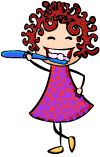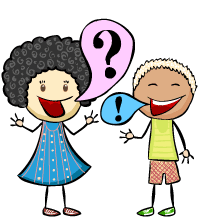The main aim of Daisy International Nursery is not only to take care of children but also to watch and stimulate the proper and harmonious development of each child. The most important for us are both; the biological and physical progression, moreover the psychomotor development, the social and emotional evaluation of the child, the evolution of speech as well as the development of self-reliance. All of these aspects interpenetrate and supplement each other to create the overall picture of the baby’s progression.
It is necessary to remember that every child develops at their own pace. The baby indicates the teacher and caregiver their next steps and development needs. The role of adults is to recognize them as well as to create conditions and opportunities for the progression; therefore, the INDIVIDUAL approach to each child is essential.
Our specialists: psychologist, speech therapist, physiotherapist
watch over the stimulation in all areas of development of each child.

All kids that attend our Nursery are measured and weighed every month. The values of the body weight and height are measured and reported in the documentation – all observations are conveyed to parents and caregiver of children.
Thanks to the balanced menu prepared on the basis of a pyramid-based diet, which is prepared by a caterer in consultation with a nutritionist, children are provided with the necessary resources for healthy development.
The childcare staff and the psychologist of our nursery observe the psychomotor development of children as well as support and stimulate respectively all spheres of the progression. This stimulation involves the activation of the sphere i.e. gross and fine motor skills.
Thanks to the exercise classes with physiotherapist, movement and dance, it is possible to stimulate the child’s development of appropriate gross motor skills. Hence, we cannot forget about the fine motor skills (i.e. precise movements of hands and feet).
For adults, the children's play can sometimes seem like the act only giving them joy. We rarely look at the play as the way of exploring the world and above all, as the hard work necessary to achieve appropriate developmental steps. Through play, children stimulate their brain to form new neural connections, the new representations of the brain that are necessary for the development. Drills such as pouring toys out of the box on the floor, picking small things to the cup (e.g. beads), making towers out of blocks, grouping toys or objects into subsets, the manipulation of toys and puzzles are plays, which are necessary for the proper development of children's psychomotor.
Child's fine motor stimulation is not only the above-mentioned games and manipulations. It is also a skill acquired in the process of becoming independent: i.e. independent eating, washing hands, brushing teeth, or removing and putting shoes.
 The development of child’s self-reliance - independent eating, hygiene routines and potty training
The development of child’s self-reliance - independent eating, hygiene routines and potty training It is very significant to mention that we pay special attention to children's acquisition of skills related to obtaining autonomy (self-eating, reporting requirements, sitting on the potty, using the toilet, hygiene routines, washing hands, teeth, dressing himself, etc.), and psychomotor skills - independent walking, running, catching objects, dunking, handling objects, toys, the development of lateralization, etc).
In our Nursery we are trying to follow the development needs of the child. Toddlers are able to signal readiness for learning activities such as e.g. independent eating. Caregivers ensure the proper arrangement of a fork or a spoon in the handle of a child to help in a difficult learning self-feeding.
Acquiring skills such as drinking from a child’s cup, eating by themselves with a fork and a spoon and chewing food have a huge impact on the later development of the speech apparatus and speech in the child.
In our Nursery children are seated on the children’s toilet after every meal and after a nap in the middle of the day. The purpose of this is to get used to the regularity of them in sitting on the toilet, which is the first step into the toilet training. Making the child use the potty or toilet immediately after sleeping is justified biologically (the body was “turned off”), so we have to remember about giving the child a chance to use the potty or the toilet immediately after the awakening. It will also be an additional motivation for the baby to work on the physiological needs of detention until awakening.
The childcare staff together with a psychologist indicate parents the baby’s readiness to begin the toilet training. This training is carried out in close cooperation with the parents, with the exchange notes and information about its progress. The cooperation between parents and the educational staff is essential for the successful and the timely completion of training.
The details of the training course are set individually for each child, depending on their features and development needs. The fact that the child does not speak yet, does not mean that it is not yet ready to the toilet training. Please note that children have a range of possibilities in order to communicate their needs - that's why it is important to capture the moment when a child is mentally ready to start getting rid of nappies.
During the training, the educational staff apply the method of positive reinforcement - or in this case, strengthening the positive successes associated with using the toilet.

At Daisy International Nursery children have the opportunity to experience their first social abilities training and to widen the Communications skills by developing speech abilities.
We also observe the social abilities like organizing the toys, helping the other children. Socializing is one of the most difficult and necessary steps of the development, children need lots of wise support of the parents and teachers. All the remarks are forwarded to the parents.
We go to a speech therapist when a child:
| not babbling | does not maintain eye contact |
| does not respond to his name, does not respond to commands | he sticks his tongue between his teeth |
| breathes with his mouth, drools | |
| has difficulty biting, chewing and swallowing | |
| has difficulty reading and writing | |
|
about 12 months of age does not even use the simplest of words (e.g. mama, dad, am, bam) about 24 months of age does not combine two simple elements (e.g. give mom) after completing 36 months of age his speech is incomprehensible to those around him |
1-6 month When the child has no vowels, consonants [p, b, m, w, t], syllables, e.g. papa, mama, baba ... 6 month no self-imitation chatter - bababa, dadada – bababa, dadada... 9 months does not recognize the intonation "stop", "must not", no pointing with a finger. 1-2 years of age [p, b, m, t, d, n, ś, ć, ź, dź + onomatopoeic expressions 3 years old does not speak sounds 4 years old does not speak sounds [s, z, c, dz] 5 years old does not speak sounds [sz, ż, cz, dż] 6 years old does not speak sounds [r] |
Weronika Klocek- speech therapist
In the early years of being in the new social group little one has to overcome a lot of difficulties.
The most common challenge is the realization by the child that he or she is not the only ones. At home, usually children have the opportunity to play with all toys whenever they feel the need to do it. Not having siblings, babies do not yet know what sharing toys means, waiting for their turn, giving up one toy against the other, games and fun shared together. Being in a group of children gives the possibility of early exercise of social behaviors and to learn what being in the group is. That allows babies train social skills from an early age, which then gives them a quick and smooth start in society.
In our Nursery children not only have the opportunity to have fun and stay in a group, but also to meet and get to know children from other cultures. The little ones have neither prejudice nor pay attention to the color of the skin or the language spoken in the child's family, for them we are all the same, which is why being in an international environment gives the opportunity to learn respect and tolerance towards other peoples, cultures.
Toddlers do not have any communication problems,
the language of a "child" is an international language because it is based on joy and positive emotions
and uses non-verbal communication.
It should be noted that interpersonal communication is not based solely on spoken language, a large percentage of communication between adults consists of non-verbal communication. For children who are just learning the language, communication is based mostly on non-verbal messages.
Speech development of children under the age of three has a different course. There is no standard "model" of the development, some children start verbal communication after the first year of life, some much later.
In our Nursery, we monitor speech development of our little ones. Speech therapist diagnoses each child individually; prepares a short review to the view of parents, she also prepares an individual set of exercises to stimulate the child’s speech development that parents can use during their time spent with children at home.
Speech Diagnosis of the child under 3 years is mainly the observation of speech and determining whether there are age-appropriate developmental steps - that is, whether the child performs the given task (of course, in the form of fun).
Speech therapist will also conduct group activities designed to stimulate children's language development.
Psychologist, Barbara Kulaç